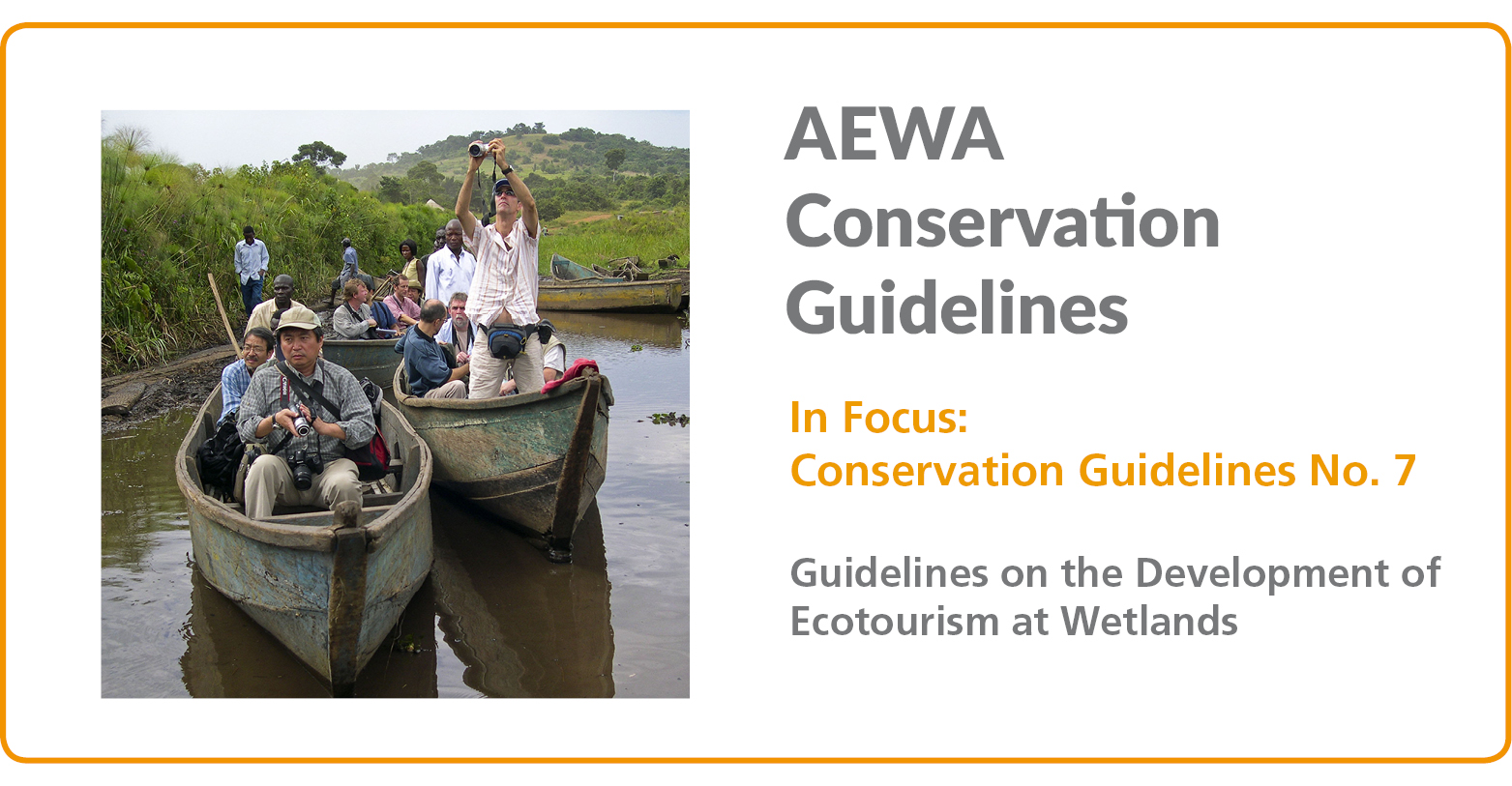In Focus: AEWA Conservation Guideline No. 7 - Guidelines on the Development of Ecotourism at Wetlands

© Sergey Dereliev, www.dereliev-photography.com
Bonn, 8 May 2017 - Tourism is an important source of income for many countries. Nature-related tourism is a world-wide phenomenon that is expanding rapidly. However nature-related tourism is only profitable in the long run if it is managed in a sustainable way. If the ecotourism industry can be made to realize this then tourism
could become an important tool for stimulating nature conservation.
Ecotourism may be defined as nature tourism that contributes to nature conservation. In a well-managed ecotouristic region, the right balance is struck between use and preservation.
In Paragraph 4.2.1 of the AEWA Action Plan, Parties are required to encourage, where appropriate, the elaboration of cooperative programmes to develop sensitive and appropriate ecotourism in wetlands. Furthermore, in Paragraph 4.2.2, Parties are required, in cooperation with competent international organisations, to endeavour to evaluate the costs, benefits and other consequences that can result from ecotourism at wetlands with concentrations of waterbirds.
Ecotourism is the only form of tourism acceptable in most of the AEWA region. Many countries have yet to make full use of the possibilities for ecotourism at their important wetlands, and it is here that the development of ecotourism should be promoted.
These guidelines examine a wide range of issues relating to nature-oriented tourism in general and offer practical advice for the development of responsible ecotourism in wetlands important for migratory birds.
For more information please visit: http://www.unep-aewa.org/sites/default/files/publication/cg_7new_0.pdf
Last updated on 09 May 2017


